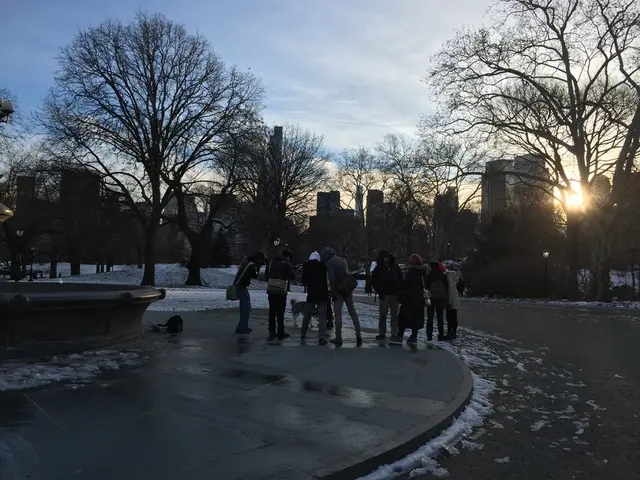Youth of Present-Day Generally Lean Towards Classical Melodies More Than Their Elder Counterparts
The landscape of orchestral music is transforming, according to James Williams, managing director of the Royal Philharmonic Orchestra. Recent studies and cultural observations suggest an increased appeal of classical music among younger audiences, particularly Gen Z and Millennials.
A study from the Royal Philharmonic Orchestra found that people under 35 are more likely to listen to classical music than those aged over 55. This trend is further supported by the findings of Classic FM in 2025, which revealed that an astonishing 84% of people under 35 show interest in classical music, highlighting a growing engagement compared to previous generations.
This generational interest is often linked to genre-blending concerts and innovative formats that mix classical music with contemporary and popular styles. For instance, combining orchestral music with hip-hop or using social media platforms like TikTok to popularize classical pieces and remixes has been instrumental in attracting younger audiences.
Events specifically designed for young people, such as the Young Euro Classic NEXT GENERATION programme, actively foster this trend. These programmes create immersive, interactive, and accessible experiences involving workshops, live performances, and hands-on activities with classical music elements for children as young as 3 years old.
Young musicians themselves are playing a significant role in popularizing classical music by bringing it into unexpected venues and contexts. The Chicago Youth Symphony Orchestra (CYSO) performing at Lollapalooza, a major popular music festival, is a prime example of this approach. By reaching broader and younger audiences who might not typically attend classical concerts, such initiatives are helping to expand the classical music audience.
The rise of multimedia presentations and charismatic performers also contributes to the increased appeal of classical music among younger audiences. Emotional storytelling, multimedia integration, and vocal/instrumental workshops engage younger audiences' creativity and participation. Musicians like Anna Lapwood, Sheku Kanneh-Mason, and Two Set Violin, with hundreds of thousands of followers, have used their influence to showcase their music in a creative, entertaining, and accessible way.
In summary, the increased appeal of classical music among younger audiences stems from a combination of strategic outreach programs, creative genre fusion, youth-focused educational initiatives, and cultural shifts that make classical music more relatable, interactive, and visible in youth cultural spaces. As these trends continue to evolve, it seems that the future of classical music is in good hands.
Sources: [1] Young Euro Classic NEXT GENERATION programme: https://www.yecberlin.de/en/next-generation/ [2] Classic FM: https://www.classicfm.com/ [3] Chicago Youth Symphony Orchestra (CYSO): https://www.cyso.org/
Classical music is becoming more appealing to younger generations, transforming the landscape of orchestral music. This shift is substantiated by studies showing that individuals under 35 are more likely to engage with classical music as compared to older age groups. For instance, a study conducted by the Royal Philharmonic Orchestra uncovered that an impressive 84% of people under 35 demonstrate interest in classical music, signalling a growing engagement compared to previous generations.







